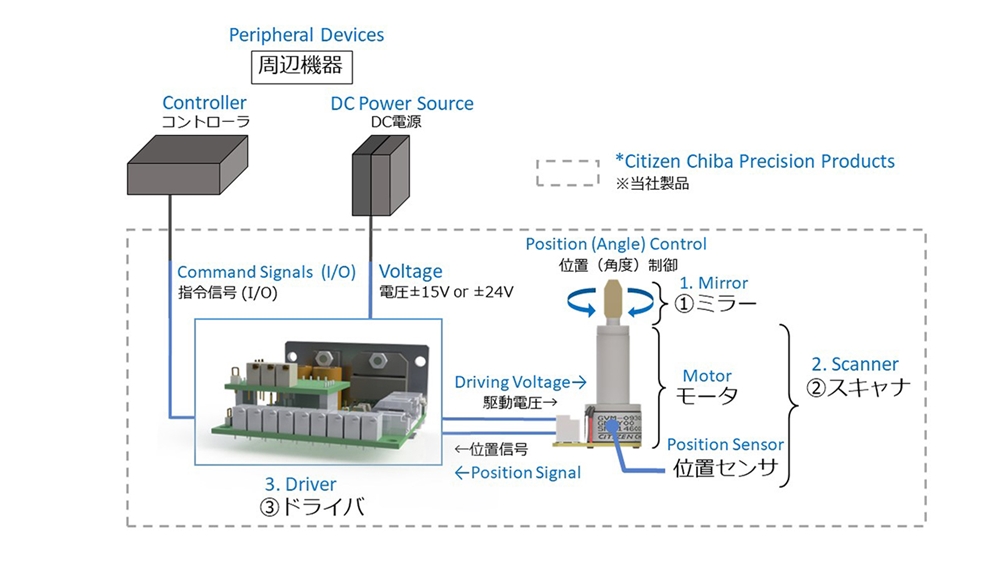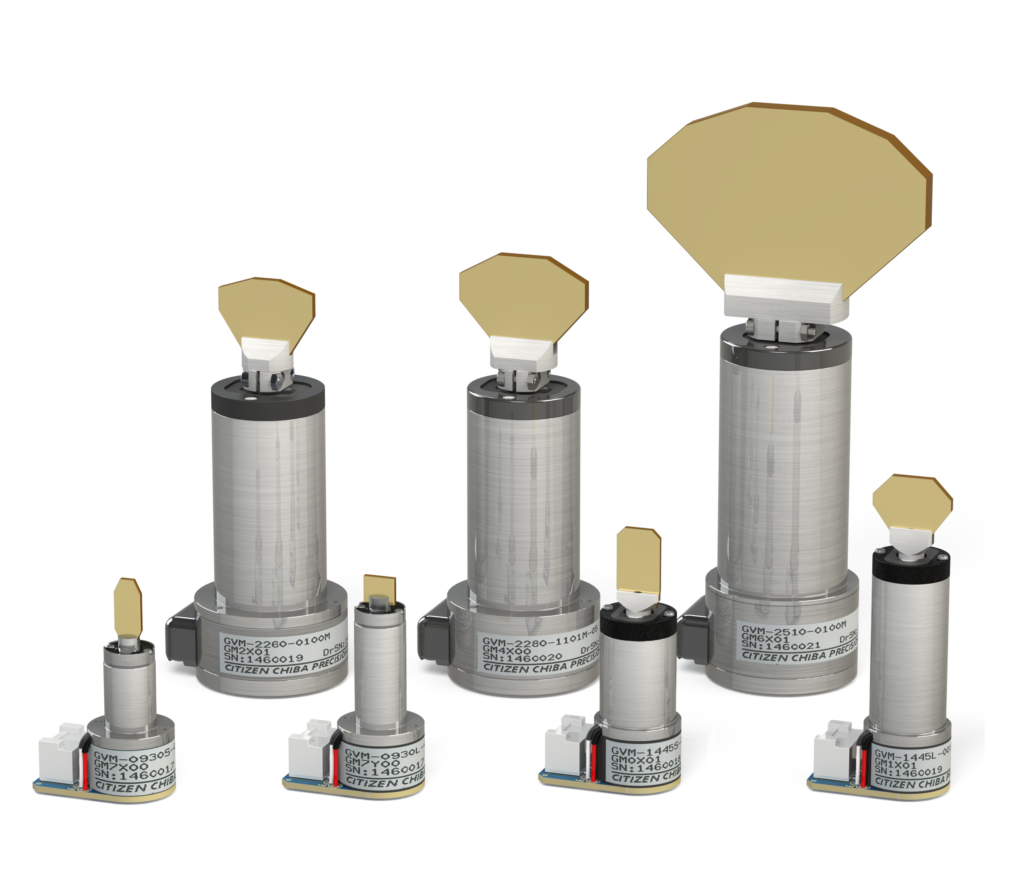How a Galvanometer Scanner Reinvents Optical Applications for Researchers
Exactly How a Galvanometer Scanner Improves Efficiency in Laser Scanning Technologies
The assimilation of galvanometer scanners in laser scanning modern technologies represents a critical innovation in accuracy design. By assisting in precise and quick changes of laser light beam direction, these tools significantly enhance functional effectiveness throughout numerous applications, from medical imaging to commercial inscription.
Recognizing Galvanometer Scanners
A galvanometer scanner is an innovative gadget that leverages electro-magnetic concepts to accomplish specific angular motion of mirrors or other reflective surfaces. These scanners run through the interaction of an electric current and an electromagnetic field, allowing precise and rapid positioning. This technology is vital in applications requiring high-speed scanning, such as laser inscription, optical interaction, and medical imaging.

Galvanometer scanners are often identified by their rapid reaction times and high angular resolution, making them perfect for applications that require quick motions and precise positioning. Their dependability and efficiency make them an important part in contemporary laser scanning technologies, adding significantly to innovations in different fields, including production, health care, and telecoms.
Mechanism of Laser Beam Of Light Control

The control mechanism relies on closed-loop comments systems that constantly check the beam of light's placement. The signals from optical sensing units offer real-time data to the control system, allowing for fast changes to maintain accuracy. This is important in applications where also mild variances can jeopardize the quality of the check or etching.
Additionally, the galvanometer's action time is critical; high-speed motors allow quick movements, making certain that the laser light beam can swiftly map complicated patterns or carry out complex procedures. The assimilation of digital signal processing further enhances the responsiveness and accuracy of the galvanometer scanner. On the whole, the mechanism of laser beam control with galvanometer scanners exemplifies the combination of sophisticated engineering and technology, producing high-performance end results in laser scanning applications.
Benefits of Improved Precision
Enhanced accuracy in laser scanning technologies uses substantial benefits across numerous applications, from commercial production to clinical treatments. The integration of galvanometer scanners enables highly exact beam positioning, which is crucial for jobs calling for meticulous information. This enhanced accuracy makes certain that the laser can target particular locations with marginal deviation, resulting in premium high quality results.
In commercial contexts, precise laser scanning results in boosted item uniformity and lowered material waste. Components produced with high precision are less most likely to call for rework, therefore boosting performance and decreasing functional expenses. In medical applications, the accuracy of laser treatments can substantially influence patient outcomes. In laser surgical procedure, specific targeting minimizes damage to surrounding cells, leading to quicker recuperation times and less complications.
Additionally, improved precision facilitates YOURURL.com advanced applications such as 3D imaging and microfabrication, where even minute inaccuracies can cause substantial mistakes. By offering trustworthy and repeatable laser positioning, galvanometer scanners add to the general efficiency and efficiency of laser systems. In recap, the benefits of boosted accuracy not just enhance functional efficiency but additionally boost the requirements of top quality and safety in different industries.
Applications in Different Industries
The adaptability of galvanometer scanners in laser scanning technologies prolongs across numerous markets, each benefiting from the precision they provide. In the clinical area, these scanners are essential in applications such as laser surgery and imaging, permitting extremely accurate targeting of cells while reducing damages to surrounding areas - galvanometer scanner. Their quick response and fine resolution are essential in generating top notch results
In the manufacturing market, galvanometer scanners improve processes like laser inscription and cutting. Their capacity to quickly direct laser light beams onto surfaces allows efficient production lines, improving speed and precision in producing intricate layouts or elements.
The automotive sector also utilizes on galvanometer modern technology for high quality control and assessments (galvanometer scanner). By employing high-speed scanning, makers can find flaws in products or assemblies, guaranteeing that products satisfy rigid criteria
Moreover, in the amusement sector, galvanometer scanners are utilized in laser light programs and display screens, providing dynamic aesthetic experiences with specific control over laser activities.
Future Trends in Laser Scanning
Emerging innovations are positioned to transform the landscape of laser scanning, with galvanometer scanners at the forefront of this makeover. As sectors progressively require precision and efficiency, the development of galvanometer modern technology will drive significant innovations in laser scanning applications.
Future trends suggest a growing integration of man-made knowledge and artificial intelligence algorithms, which will improve information refining abilities and automate decision-making in real-time. This synergy will enable for extra advanced evaluation of scanned information, bring about improved precision in applications such as 3D modeling and autonomous navigating.
In addition, the miniaturization of components and the growth of innovative products will certainly add to lighter, much more mobile laser scanning systems. This transportability will broaden the review reach of laser scanning technologies into previously inaccessible environments, such as remote terrain and elaborate building spaces.
The surge of increased truth (AR) and Visit Website virtual truth (VR) applications will also form the future of laser scanning. By combining galvanometer scanners with AR and VR, users will certainly profit from immersive experiences that enhance visualization and job planning.
Final Thought
To conclude, galvanometer scanners play a crucial function in enhancing laser scanning modern technologies through their precise control of beam instructions and fast angular changes. The combination of advanced responses systems and optical sensors dramatically improves functional rate and accuracy, causing enhanced outcomes in applications such as laser inscription and medical imaging. As sectors significantly take on these innovations, the recurring advancements in galvanometer scanner styles are anticipated to additional boost efficiency standards and expand application opportunities.
The assimilation of galvanometer scanners in laser scanning technologies stands for a critical innovation in precision engineering. Generally, the device of laser beam of light control via galvanometer scanners exemplifies the fusion of advanced engineering and innovation, producing high-performance outcomes in laser scanning applications.
By supplying repeatable and trustworthy laser positioning, galvanometer scanners contribute to the total efficiency and performance of laser systems.The convenience of galvanometer scanners in laser scanning technologies prolongs throughout multiple industries, each benefiting from the precision they supply.In conclusion, galvanometer scanners play a critical duty in enhancing laser scanning modern technologies through their accurate control of light beam direction and fast angular changes.